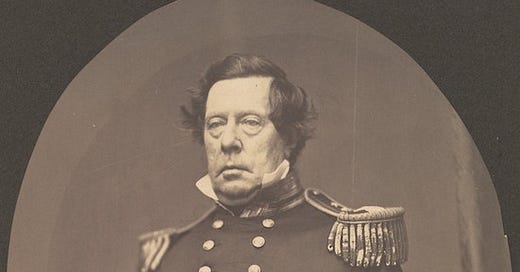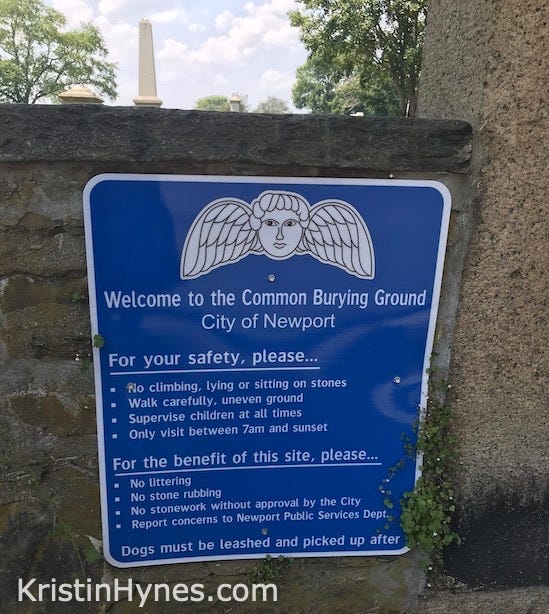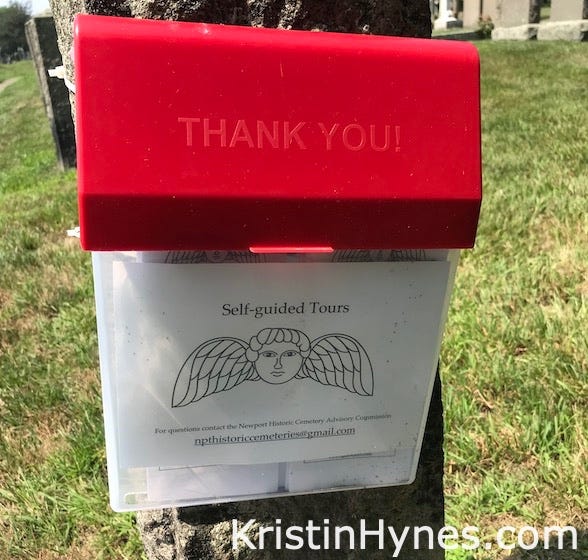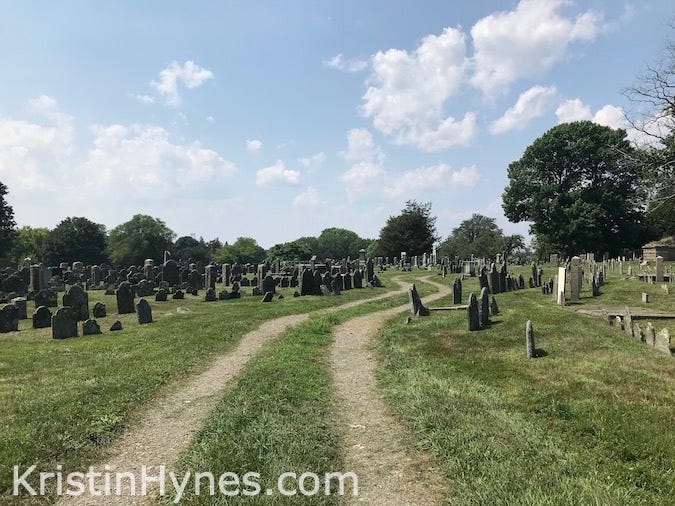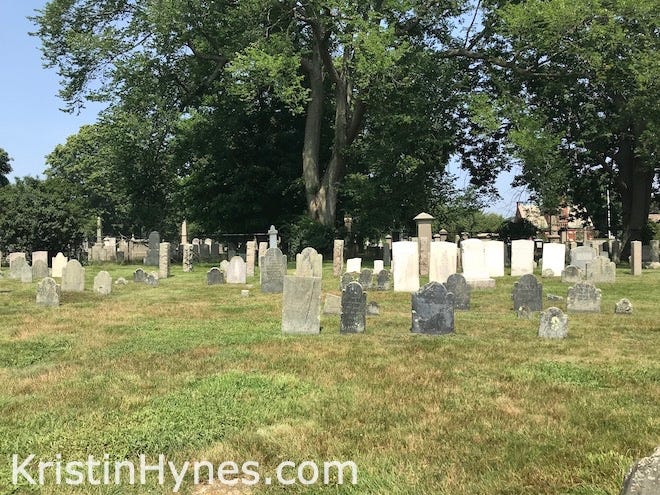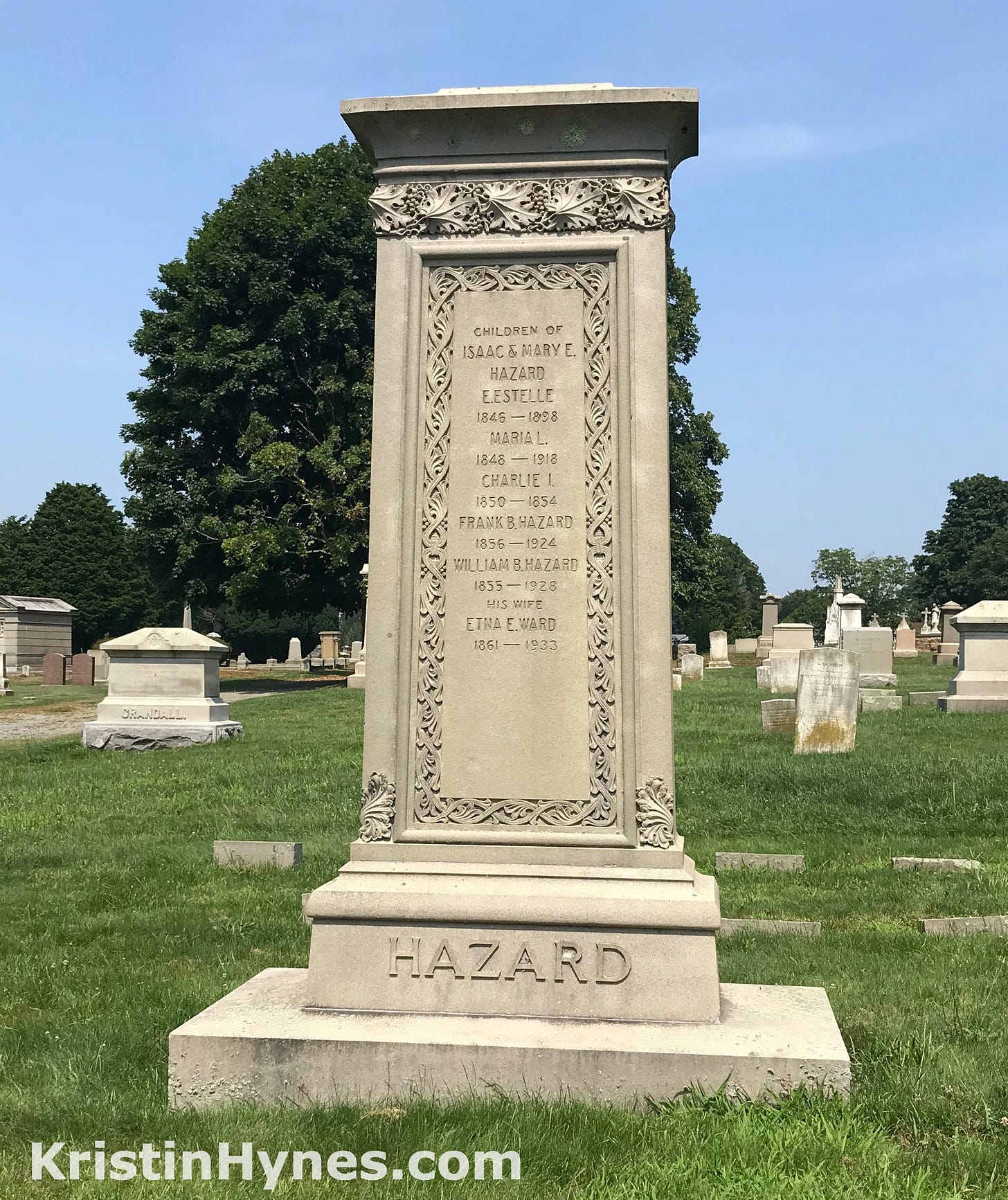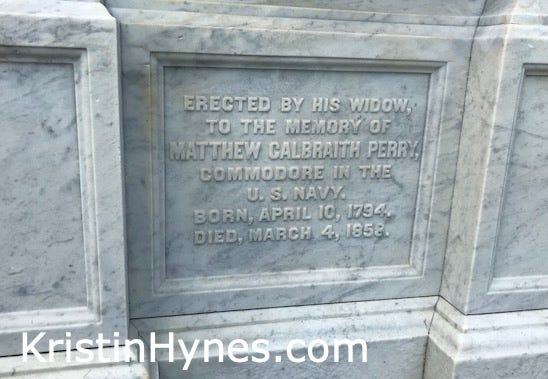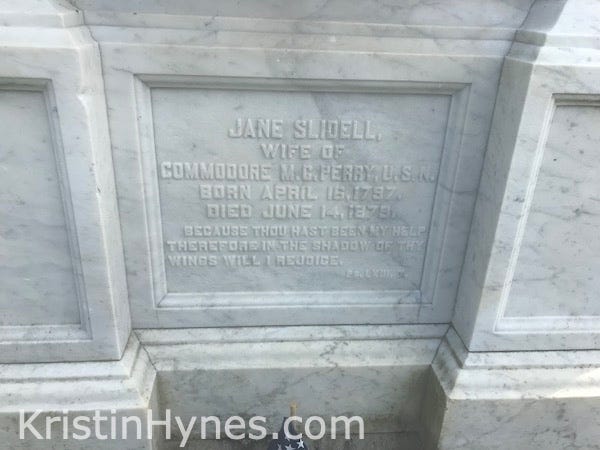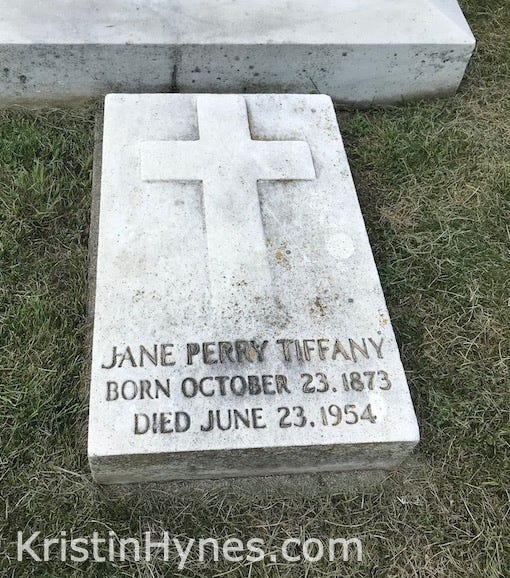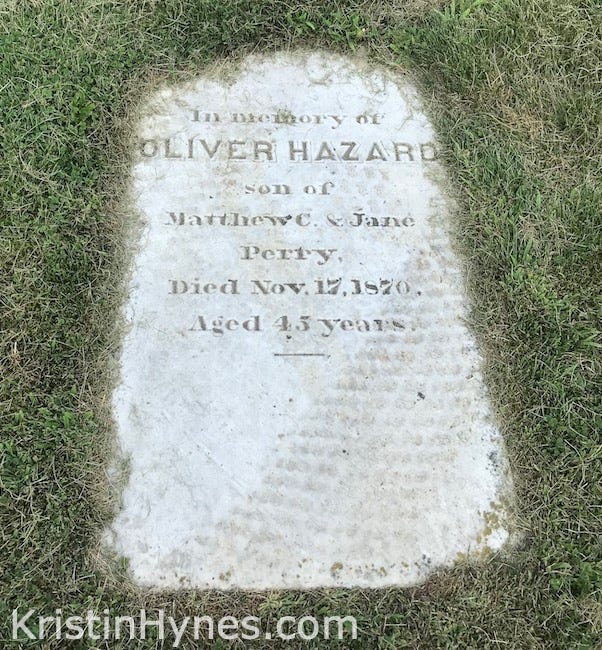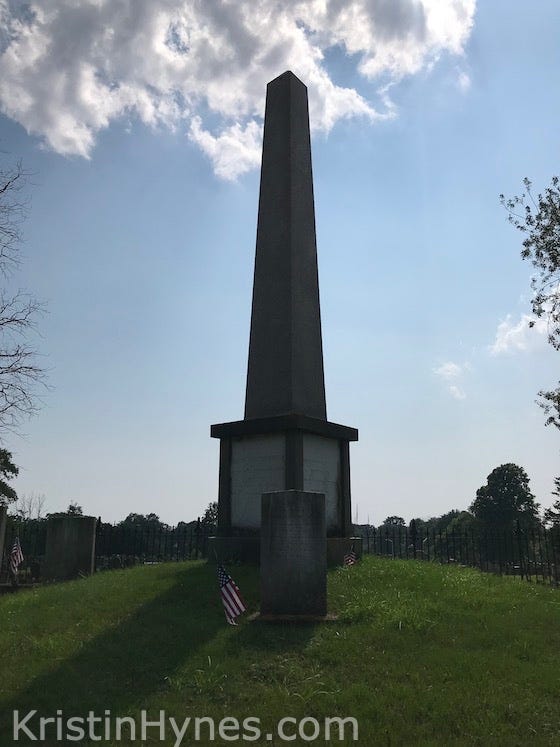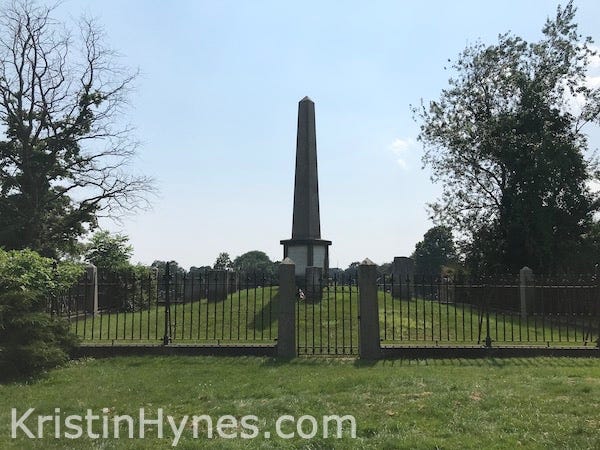Japanese History......In Rhode Island
I have been meaning to make this post for over a year but forgot to until I came across photos I had taken in the summer of 2021. As I am originally from Boston, MA, I returned home to visit my family. During this trip, I also went to Newport, Rhode Island, for a few days.
When thinking about the history of Japan, Rhode Island is a place that does not usually come to mind and, therefore, seems random. Rhode Island, however, is the birthplace of Commodore Matthew C. Perry, a man that had an immense impact on Japan. For over 200 years1, the country closed itself off to the outside world2. During this period (known as sakoku), anyone caught leaving or entering Japan would be executed. The Tokugawa shogunate (the last feudal military government) enacted this isolationist policy due to foreign influence being seen as a threat to the stability of the shogunate. At the time, missionaries from Portugal and Spain were hoping to convert Japanese people to Catholicism.
After more than 200 years of isolation, Japan would be compelled to open with the arrival of Commodore Matthew C. Perry. In July 1853, Perry traveled to Tokyo Bay with his infamous black warships carrying a letter from U.S. President Millard Fillmore. The Americans were giving Japan demands that they wanted the Japanese to concede to. If they refused, force would be used.
Perry’s arrival in Japan led to the eventual downfall of the Tokugawa shogunate that had ruled the country from 1603 to 1868. With the end of the Tokugawa period and the arrival of the Meiji period, Japan began to transform itself into a modern nation. In a world where European and American imperialism was vast, Japan’s military sector was prioritized. A national army replaced regional ones, and all male citizens were required to enlist once they reached twenty years of age. This would later lead to the formation of the Japanese Empire and the atrocities it committed during World War II.
Matthew Calbraith Perry, the man who forever changed the course of Japanese history, was born on April 10, 1794, in Newport, Rhode Island, to a well-known naval family. His father, Christopher, was a Navy Captain who would serve as Chief Justice of the Court of Common Pleas for Washington County, Rhode Island. Perry’s older brother Oliver was a naval commander and “among the most famous of American naval heroes.3” He is especially noted for his role in the War of 1812 and the Battle of Lake Erie in 1813.
Matthew C. Perry died March 4, 1858, in New York City at the age of 63. He is buried in Newport, Rhode Island, at the Island Cemetery.
I visited this cemetery in the summer of 2021. I had been to Newport on multiple occasions but had yet to get the chance to visit the cemetery before. Instead, I waited for a very hot day to take my mom on a long walk to visit Perry’s grave. While other tourists were spending time on the beach or shopping, I spent my time visiting a cemetery.
Below are some of the pictures I took. I will post them in the order that I took them.
In Newport there are two cemeteries located next to each other. Common Burying Ground is located right next to Island Cemetery (where Perry is buried), and I went in through this entrance. I did not realize at the time there are two cemeteries.
Pamphlet for the self-guided tour.
The maiden name of Perry’s paternal grandmother was Hazard and it was his brother Oliver’s middle name. I wonder if the people buried at this grave are relatives of Perry’s.
Perry’s grave. The text says “Erected by his widow, To the memory of Matthew Calbraith Perry, Commodore in the U.S. Navy. Born, April 10, 1794. Died, March 4, 1858.
Close up of the text.
Perry was married to Jane Slidell and she is also buried here. The text says “Jane Slidell, Wife of Commodore M.C. Perry, U.S.N. Born April 16, 1797. Died June 14, 1879. Because thou hast been my help, therefore in the shadow of thy wings will I rejoice.”
The gravesite of Jane Perry Tiffany. I had forgotten who this was but according to Findagrave.com4 it would be Matthew C. Perry’s cousin.
This was dedicated to the memory of Perry’s brother, Oliver Hazard Perry. He died on August 23, 1819 which was his 34th birthday.
Gravesite of Oliver Hazard Perry.
Distant view of Oliver’s grave.
Although the relationship between the United States and Japan had a tumultuous start, the two nations have gone on to become close allies. They especially remain committed to pushing back against the rise of China and against “North Korea's ‘provocative behaviour5.’”
Relations between countries can easily change, however. For example, while Japan contested its forced opening by the United States, the two countries were on the same side during WWI, only to become enemies during WWII. In addition to security reasons, Japan will hopefully remain a close ally of the United States as it is the world’s third-largest economy and exports many valuable products (such as technology and automobiles). According to remarks6 made last May by U.S. President Biden and Japan’s Prime Minister Kishida, it looks like it will.
I have seen the length of time range from 214 years to 265 years.
There were a few exceptions to this seclusion as the Chinese, Koreans, and Dutch were allowed (limited) access to Japan.
Skaggs, David Curtis. (2006). Oliver Hazard Perry: Honor, Courage, and Patriotism in the Early U.S. Navy. Annapolis, MD: Naval Institute Press. eBook.
https://www.findagrave.com/memorial/88043028/perry-tiffany
https://www.reuters.com/world/asia-pacific/biden-says-us-japan-s-korea-more-aligned-than-ever-north-korea-2022-11-13/
See the following link for comments made by Biden and Kishida at the bilateral meeting in Tokyo, Japan.
https://www.whitehouse.gov/briefing-room/speeches-remarks/2022/05/23/remarks-by-president-biden-and-prime-minister-fumio-kishida-of-japan-during-bilateral-meeting/

